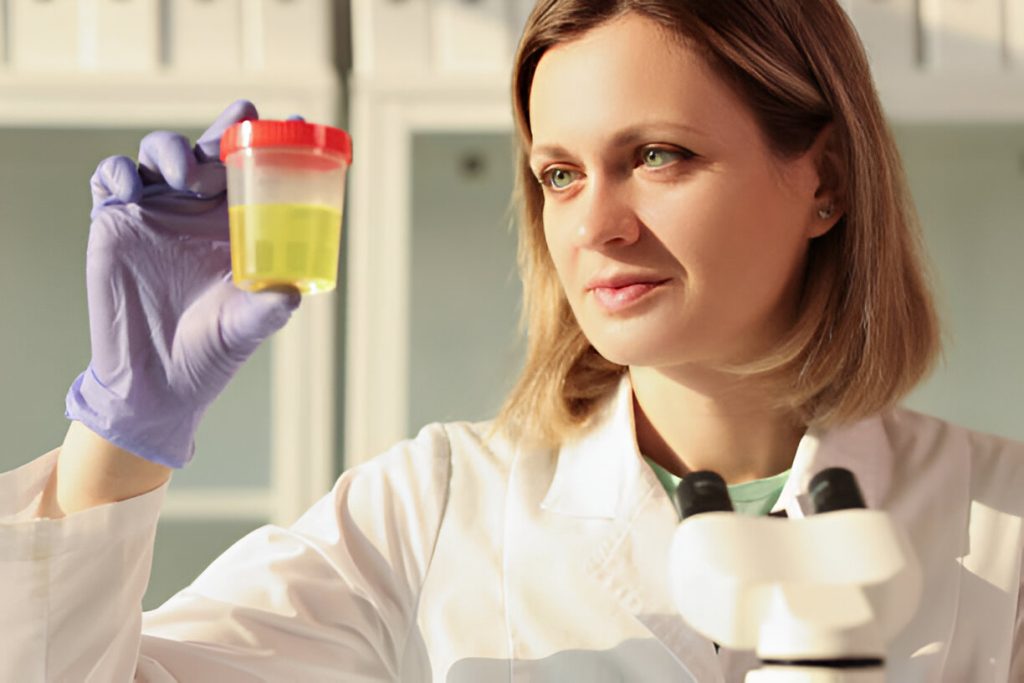Urine test are also called urinalysis. They are a common method that healthcare providers use to detect many health conditions. They can reveal much about your body. They do this by checking the contents, concentration, and look of your urine. However, there are certain limitations to what a urine test can detect. In this article, we will explore what urine tests can’t detect. We’ll cover the gaps from many sources and give a full overview.
Limitations of Urine Test
Urine tests are helpful for diagnosing many conditions. These include urinary tract infections (UTIs), diabetes, and kidney diseases. They can detect substances like glucose, proteins, ketones, and blood in the urine. Despite their usefulness, urine tests have several limitations.
Conditions That Go Undetected
- Certain Diseases: Urine tests can miss detecting early stages of diseases. Conditions like some forms of cancer, liver diseases, and early-stage kidney diseases might not show up in urine tests. Advanced stages of these diseases may change the urine’s content. But, finding them early often needs better tests. Also, autoimmune diseases and some neurological disorders might not show in urinalysis. Other diagnostic tools are needed.
- Psychedelic Drugs: Standard urine tests cannot detect certain psychedelic drugs. LSD, psilocybin, DMT, peyote, and mescaline are hard to spot in typical urine tests. These drugs do not produce metabolites that are easily detected in urine samples. As a result, people using these substances might pass a standard urine drug test. They might pass despite having consumed them.
- Designer Drugs: Many synthetic drugs are not detected in standard urine tests. Spice, bath salts, U-47700, Flakka, synthetic marijuana, and K2 are drugs. They are always being modified. Because of their ever-changing chemical structures, they evade detection by standard panels. Advanced and specialised tests are required to detect these substances. These drugs evolve quickly. New forms may be hard to spot until we develop specific tests. This creates a lasting gap in detection.
- Kratom: This plant-derived substance, which acts like an opioid, is relatively new on the market. It is often not included in routine drug testing panels. Kratom requires specific testing that is not typically part of a standard urinalysis. Users of Kratom may pass a standard drug test undetected. This is despite the substance’s psychoactive effects.
Influence of External Factors
- Hydration Levels: The concentration of substances in your urine can be affected by how much water you drink. Overhydration can dilute urine, making it harder to detect certain substances. Conversely, dehydration can concentrate substances, possibly leading to false positives. This variability means that when the urine sample is taken can greatly impact the results.
- Diet and Medications: What you eat and the medications you take can influence urine test results. For instance, eating poppy seeds might result in a false positive for opiates. Some medications and supplements can alter the colour, odour, or pH of urine, potentially skewing results. Foods rich in some vitamins or compounds can also affect the test results. They can lead to misleading conclusions.
False Positives and Negatives
- Accuracy Issues: Urine tests can sometimes produce false positives or negatives. A false positive means the test shows a substance is present when it’s not, hence a false negative indicates no presence when the substance is there. Contamination, improper handling, and individual metabolism rates can cause these inaccuracies. These mistakes cause stress and missed diagnoses. They show the need for more testing.
- Short Detection Window: Urine tests have a limited detection window. They can only detect substances within a certain timeframe after consumption. For many drugs, this window is quite short, ranging from a few hours to a few days. This limitation means that substances taken outside this window might go undetected. For example, occasional drug users might pass a urine test. They will pass if the test is done outside the detection period. But specifically, frequent users might not.
Advanced Diagnostic Techniques
Given these limitations, it’s important to use urine tests with other methods. This is needed for a full health assessment.
- Blood Tests: Blood tests can provide more detailed information about your health. They are more reliable for detecting certain conditions and substances that might not appear in urine. Blood tests can reveal info about organ function and nutrition deficits. They can also show the presence of infections. This makes them useful for a wide range of diagnoses.
- Imaging Techniques: Imaging methods like MRI, CT scans, and ultrasounds can detect problems. These problems are ones that urine tests cannot. These techniques are great for diagnosing internal issues. These issues include tumors, organ damage, and structural problems. Imaging gives a visual of the body’s insides. It helps diagnose conditions that don’t show in urine.
- Specialised Tests: Specialised Tests are key for finding hidden drugs. Types include hair analysis, saliva tests, and advanced toxicology screens. They can be more effective. These methods have longer detection windows. They can identify more substances. For instance, hair tests can detect drug use over several months. They provide a longer-term view of substance use.
- Genetic tests can find disease predispositions. Urine tests cannot find them. The tests can help to understand genetic disorders. They can also help with inherited conditions and risks for specific health issues. They offer a personalised approach to healthcare.
Conclusion
Urine tests are a valuable tool for diagnosing many health conditions. But also, they have limits. They may miss early stages of some diseases. They cannot detect some psychedelic and designer drugs. They are also influenced by external factors, like hydration and diet. To overcome these limitations, healthcare providers often use additional diagnostic methods such as blood tests, imaging techniques, and specialized drug screenings.
By understanding what urine tests miss, you can also see the need for a full approach to health testing. Always ask your healthcare provider for the best testing methods. They should fit your specific health concerns. Using multiple diagnostic tools ensures a better understanding of your health. It leads to a better treatment results and well-being.
Visit: ULTRA CARE MEDICAL CENTER
Get Comprehensive Testing at Deptford Medical Center
If you have concerns about what a urine test can detect, visit Deptford Medical Center. They will give you a thorough evaluation. Our experienced team offers a range of diagnostic services to ensure you receive the most accurate health assessment. We offer advanced blood tests. We also offer specialized screenings. We can provide care that is tailored to your needs.
Contact Deptford Medical Center today. Schedule your appointment and take the first step to better health. Our dedicated professionals are here to guide you through every step of the diagnostic process. They will ensure you get the best care. Don’t leave your health to chance—trust Deptford Medical Center for all your medical testing needs.
Frequently Asked Questions
1. Can a urine test detect all types of cancer?
No, urine tests cannot detect all types of cancer. They might miss early stages of some cancers, such as bladder cancer. Detecting them will require more advanced diagnostic methods.
2. Are all drugs detectable through a urine test?
No, not all drugs are detectable. Standard urine tests might miss LSD and synthetic marijuana. This is because their chemical structures are unique.
3. How does hydration affect urine test results?
Hydration levels can dilute or concentrate urine, impacting the detection of substances. Drinking too much water can dilute substances, making them harder to detect. But, dehydration can concentrate them, leading to false positives.
4. Can diet influence urine test outcomes?
Yes, certain foods and medications can alter urine’s colour, odour, and pH, potentially affecting test results. For example, eating poppy seeds might result in a false positive for opiates.
5. What is a false positive in a urine test?
A false positive occurs when a urine test is wrong. It shows a substance is there when it isn’t. This can result from factors like contamination. It can be a result of certain medications or mishandling the urine sample.
6. What is the detection window for urine tests?
The detection window for urine tests is typically short, ranging from a few hours to a few days after substance consumption. This makes it harder to detect substances used outside this timeframe.
7. Can urine tests diagnose all health conditions?
No, urine tests have limitations. They can’t diagnose the early stages of some diseases. They also can’t diagnose certain autoimmune or neurological conditions. These cases need extra diagnostic tools for a full assessment.
8. Are there more accurate alternatives to urine tests?
Yes, other tests like blood tests, imaging, and drug screenings can give more details. They are also more accurate at showing health information. They can detect conditions and substances that urine tests might miss.

